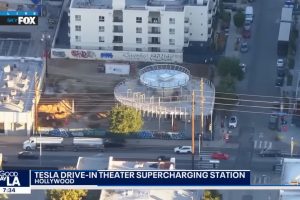Key Points
- 🚗 Plans for a major shift in the U.S. automotive market, aiming for two-thirds of new vehicles to be electric by 2032, face a setback.
- 🏛️ The House of Representatives, led by Republicans, blocked a Biden Administration-pushed vehicle emissions regulation in a 221 to 197 vote.
- 📉 The regulation aimed to extend emission standards from 2027 to 2032, targeting a 56% reduction compared to the existing standard expiring in 2026.
- 🤔 Republicans argue for considering alternative technologies like hydrogen, hybrids, and internal combustion engine vehicles, expressing skepticism about the global impact of emissions and government intervention.
- 🌍 The proposed rules by the EPA aimed to cut over 9 billion tons of CO2 emissions by 2055, with automakers divided on the terms, and the UAW and Toyota opposing the strict guidelines.
- ⚡ Tesla stood out by urging the Biden administration to adopt stricter heavy-duty emission limits.
Plans for a major shift in the U.S. automotive market over the next decade have taken a drastic hit as today, the House of Representatives, which is led by Republicans, blocked a Biden Administration-pushed vehicle emissions regulation that would have resulted in two-thirds of new vehicles being electric by 2032.
In a 221 to 197 vote, which included five Democrats and 216 Republicans, a veto threat was drawn from the White House, which stated that the EPA’s ability to issue automotive regulations would be “catastrophically impaired.”
Reuters initially reported the story.
The EPA was attempting to push proposed standards from 2027 to 2032 to cut emissions by 56 percent compared to 13 percent, which is the existing standard set to expire in 2026.
Republicans are unconvinced that the global outlook of emissions and the government’s attempts to roll back how much pollution is released from cars is the way to do things. Instead, they feel that other technologies also need to be considered, including that of internal combustion engine vehicles.
“While EVs may play a large role in the future of the auto industry, Washington should not discount other technologies like hydrogen, hybrids, and the internal combustion engine,” Tim Wahlberg, one of the sponsors of the legislation, said.
The EPA believes the proposed rules would cut more than 9 billion tons of CO2 emissions from the atmosphere within the next 32 years, aiming for that type of reduction by 2055.
Automakers are divided on the terms of the proposed emissions cuts. However, the UAW, which represents workers at GM, Ford, and Stellantis, pushed the Biden Adminsitration to finalize less strict emissions guidances. Toyota also said that the EPA requirements were “extreme and outside historical norms.”
Tesla, however, urged the Biden adminsitration to adopt stricter heavy-duty emission limits.





